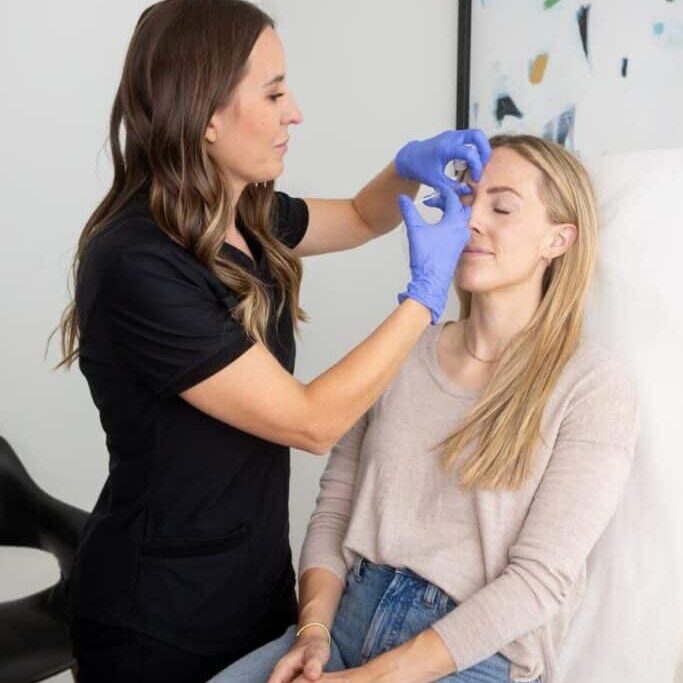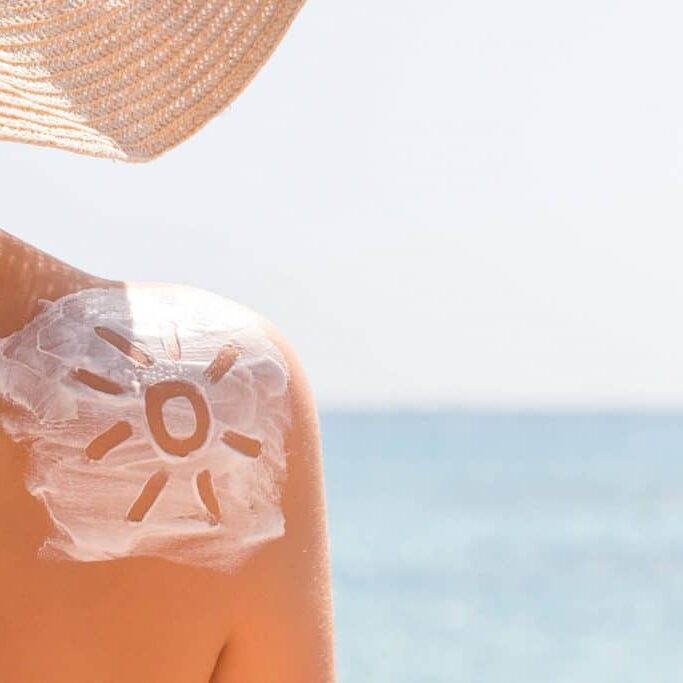
Sunscreen
Do you remember these days, pass the baby oil and cocoa butter!
I remember in high school when you laid out as much as possible on vacations so you could come back looking like a bronzed goddess! I wish that I was a little smarter back then and took sunscreen and sun protection more seriously, but it’s never too late to start now.
There are two principal ways in which sunscreen blocks UV radiation. The sunscreen either contains compounds that physically block the sun by reflecting the UV rays, or it contains chemicals that absorb the UV radiation before it gets to the skin. They are referred to as physical and chemical blockers respectively.
The UV radiation that reaches the earth’s surface is principally UVA and UVB. The vast majority of UV radiation that reaches our skin is UVA with only a small percentage being UVB. UVA, being that it has longer wavelengths, can penetrate more deeply in the skin, and is not blocked by the glass of a car window. Technically, UVA and UVB do different things to the skin, but both wavelengths cause damage to the DNA, increase the risk of skin cancer, and cause photoaging.
Recently compounds have been developed that are more effective at absorbing a broad range of UV radiation, and sunscreens are now combining chemicals that absorb different portions of the spectrum to create a broad spectrum of protection. Make sure to read the sunscreen and see that it offers “broad spectrum” coverage. Commonly used ingredients that will cover a broad spectrum are an avobenzone, and octocrylene.
The most common physical blockers are sunscreens that contain zinc or titanium. Physical blockers are slightly different in that they have always blocked the full spectrum of UV radiation because all they do is reflect the rays. They have been around for a while but they were cumbersome to use initially because the formulations years ago would not rub into your skin. They would simply have to be painted on like a thin white paste on the nose. Think of any beach-themed movie or TV show from the ’80s or early ’90s. Technology has now dramatically improved the ease and esthetic of their use.
Possibly the most important aspect of sunscreen use is reapplication. Sunscreen does not last for nearly as long as what advertisers would have you believe, and there is no such thing as waterproof when it comes to sunscreen you rub onto your skin. They will all wash off if you’re having fun swimming or sweating. No matter the SPF, if it’s not on your skin it won’t work, so remember to reapply every few hours.
People frequently ask for sunscreen recommendations, or about what the best sunscreen is. My answer is the one you use! There are a lot of great sunscreens to choose from and as long as it has an SPF of at least 30, good broad-spectrum coverage, and you reapply frequently with appropriate amounts, then the rest is just personal preference. There are thick creams, runny lotions, and aerosol sprays, all with a variety of smells and prices attached. Find one that you like and use it.
Our current favorite when it comes to facial sunscreens is the Elta MD UV Clear, with SPF 46. It’s a physical blocker that rubs in clean and smooth and does not leave your face feeling sticky and without an annoying sunscreen smell or residue. The Elta MD daily is a little bit more creamy and also awesome! They don’t pay me to sell their product, but I recommend it to so many people that they probably should.
Easy Sun Tips
- Use a sunscreen with at least SPF 30 that is Broad spectrum and apply every couple of hours.
- Avoid mid-day sun hours from 10 am- 2 pm if possible when scheduling activities like a hike or a Tee time.
- Wear sun-protective clothing with a UPF rating. It really works and believes it or not J crew even has sun shirts!
- Get a moisturizer with SPF so that you can get into the habit of applying daily, even in the dead of winter.
- Wear hats and sunglasses whenever possible. They have so many cute styles that this one is pretty easy and if you are going to be out for a while the bigger the brim, the better.






